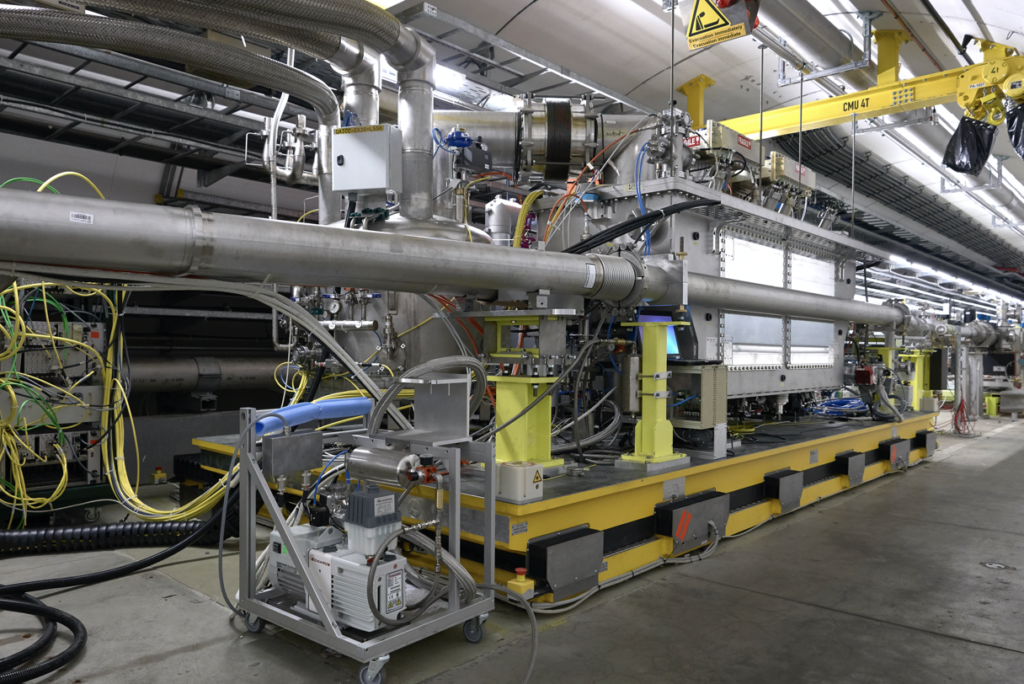
The image shows the cryomodule jointly designed and manufactured by CERN and the UK to demonstrate the world’s first crabbing of a proton beam. Credit: CERN
Scientists, engineers and technicians from the UK have embarked on a £26M project to help upgrade the Large Hadron Collider (LHC) at CERN, on the French/Swiss border near Geneva. The collaboration is between the Science and Technology Facilities Council (STFC), CERN, the Cockcroft Institute (CI), the John Adams Institute (JAI), and eight UK Universities including the CI partner universities Lancaster, Manchester and Liverpool.
Spokesperson for the HL-LHC-UK2 project Professor Rob Appleby, from the University of Manchester and Cockcroft Institute, said: “The HL-LHC-UK2 project gives the UK a leading position in high-luminosity collider science and will significantly improve the ability of the Large Hadron Collider to enable new discoveries in the frontier of physics.”
CERN’s High Luminosity LHC project (HL-LHC), a large international collaboration, will upgrade the LHC by increasing the number of particle collisions by a factor of 10, allowing physicists to learn more about the properties of the Higgs boson. Phase two of the UK project, called HL-LHC-UK2, is focused on delivering essential hardware to the upgraded collider, with many parts expected to come from UK industry. Essential hardware and project management will be provided by STFC’s Daresbury Laboratory in the Liverpool City Region, in partnership with other project partners and UK industry.
Professor Mark Thomson, particle physicist and Executive Chair of STFC, is keen to ensure that the project helps to develop the UK’s knowledge economy and said: “This is a significant undertaking, yet one with fantastic benefits for the UK. The aim is for this project to involve UK industry at every stage, with specialist companies being invited to bid for contracts to manufacture high-tech components for the Large Hadron Collider.”
Phase two of the UK project will deliver the final hardware and supporting simulations for the LHC upgrade in five crucial areas. Across the CI partners, this includes studies into the dynamics of high-intensity and high-energy proton beams, the development of novel diagnostics to measure the beam’s properties, as well as R&D into highly innovative ‘crab cavities’ that enable the LHC’s particle beams to be angled, increasing the opportunity for collisions.
Cockcroft Institute Director Professor Peter Ratoff added: “The leadership of Cockcroft Institute staff has been crucial to the success of this project, underlining our very strong commitment to enabling the research of a large fraction of the UK particle physics community and, of course, LHC users everywhere.”
It is hoped that the increased luminosity of HL-LHC will enable researchers to find clues that could solve the mystery of dark matter. The lead partner in the collaboration is the University of Manchester with Professor Rob Appleby as spokesperson for the HL-LHC-UK2.
